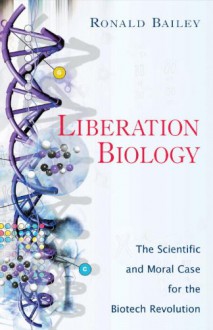The 21st century will undoubtedly witness unprecedented advances in understanding the mechanisms of the human body and in developing biotechnology. With the mapping of the human genome, the pace of discovery is now on the fast track. By the middle of the century we can expect that the rapid...
show more
The 21st century will undoubtedly witness unprecedented advances in understanding the mechanisms of the human body and in developing biotechnology. With the mapping of the human genome, the pace of discovery is now on the fast track. By the middle of the century we can expect that the rapid progress in biology and biotechnology will utterly transform human life. What was once the stuff of science fiction may now be within reach in the not-too-distant future: 20-to-40-year leaps in average life spans, enhanced human bodies, drugs and therapies to boost memory and speed up mental processing, and a genetic science that allows parents to ensure that their children will have stronger immune systems, more athletic bodies, and cleverer brains. Even the prospect of human immortality beckons.Such scenarios excite many people and frighten or appall many others. Already biotechnology opponents are organizing political movements aimed at restricting scientific research, banning the development and commercialization of various products and technologies, and limiting citizens’ access to the fruits of the biotech revolution.In this forward-looking book Ronald Bailey, science writer for Reason magazine, argues that the coming biotechnology revolution, far from endangering human dignity, will liberate human beings to achieve their full potentials by enabling more of us to live flourishing lives free of disease, disability, and the threat of early death. Bailey covers the full range of the coming biotechnology breakthroughs, from stem-cell research to third-world farming, from brain-enhancing neuropharmaceuticals to designer babies. Against critics of these trends, who forecast the nightmare society of Huxley’s Brave New World, Bailey persuasively shows in lucid and well-argued prose that the health, safety, and ethical concerns raised by worried citizens and policymakers are misplaced.Liberation Biology makes a positive, optimistic, and convincing case that the biotechnology revolution will improve our lives and the future of our children, while preserving and enhancing the natural environment.
show less

